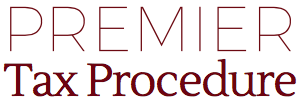CASSATION APPEALS
Cassation appeals are extraordinary appeals before the Supreme Court that must be formalized within 30 days. Cassation appeal is the most complex of procedural Law with its own specific procedural technique, the cassation technique. In the words of the Constitutional Court, Judgment 248/2005, of October 10th:
“This requirement is especially relevant in the cassation appeal given its particular nature that requires special diligence and technical expertise by the legal assistance of the appellants who decide to use this means, as they must invariably know both the procedural requirements established in the laws for this type of appeal, and the interpretation by the Supreme Court of the aforementioned requirements, as issues of ordinary legality”.
STRUCTURE AND PHASES
Technical Requirements
The technical requirements are so demanding that only a limited number of lawyers can file appeals in Comparative Law. For this reason, Premier Tax Procedure counts on Alfonso del Castillo, one of the most recognized procedural lawyers in cassation at a national level.
After the reform by the Organic Law 7/2015, in the context of Contentious-Administrative Jurisdiction the cassation appeal, from the appellant’s perspective, is structured in two phases: preparation and interposition.

Preparation Phase
The preparation document is the most complex and difficult and, among other aspects, requires the justification of the compliance with the formal requirements, of the infringement committed by the appealed judgment, of its relevance and, mostly, of the concurrence of objective cassational interest for the formation of case law.
The objective interest for the formation of case law is the gravitational axis of the cassation appeal. Regardless of its amount, the cassation appeal will be admitted if it justifies the presence of an objective interest in the formation of case law. That is to say, if the Supreme Court considers necessary to form case law on the issue raised.
In addition, the preparation brief must comply with the requirements set forth in the Supreme Court Agreements of April 20th, 2016 and November 3rd, 2021. These agreements stablish, among other aspects, limitations on the length, format and structure of the preparation document.
The extreme difficulty reveals itself in the reduced rate of admissions of around 25%.

Interposition Phase
Once the appeal has been admitted, the interposition phase begins; the appellant will explain in detail the correct interpretation of the rules or jurisprudence, as well as the case law to be established by the sentence that the Supreme Court will issue in the exercise of its nomophylactic function.
This complex nature of the appeal reveals the importance of seeking counselling from lawyers with the maximum experience and proven success in the defence of tax appeals before the Supreme Court, and Premier Tax Procedure holds one of the most recognized procedural law lawyer in this field.
Do you need help?
Don’t hesitate to contact our team if you need a refund of your company’s VAT.
We will study the best solution for your case and we’ll get back to you as soon as possible.
